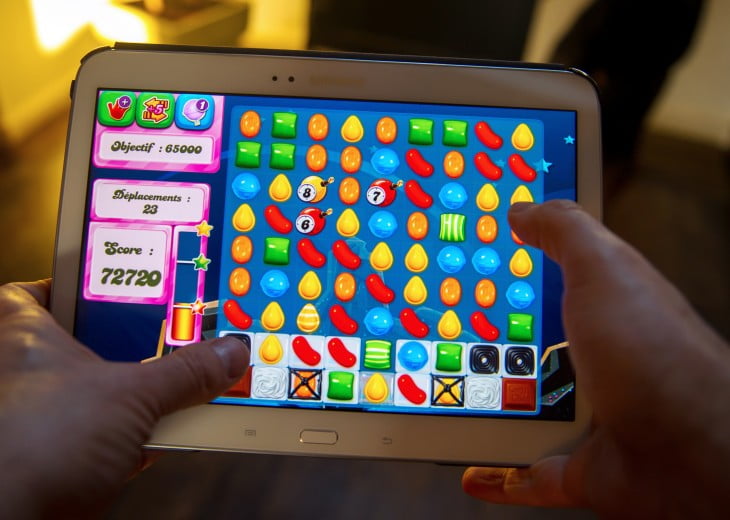Teens who play violent video video games aren’t any extra violent
Share

Video games are the main part of most teenagers’ lives. As many as 90 percent of U.S. Teens play them. Boys are more likely to play than girls. More violent video games, including Call of Duty or Grand Theft Auto, are some of the most famous. All this has led adults to worry that violent video games make young adults act violently in actual existence. In truth, a cautious new study finds, this isn’t always the case.
Many scientific studies have scouted for links between video-game violence and real-world violence. It would possibly appear logical that gambling violent games could have lasting consequences on the mind. And one’s outcomes would perhaps affect how someone acts. However, research has proven mixed results. Some studies determined a sturdy effect. Others observed none. Those conflicting findings have confused many humans — teens, mothers, fathers, and scientists.

Psychologists Andrew Przybylski and Netta Weinstein felt that an extra carefully designed look might clean the photo. Przybylski works at the University of Oxford in England, and Weinstein is at Cardiff University in Wales.
The two recruited 1,004 teens in the United Kingdom. All were 14 or 15 years antique. The teenagers’ dad and mom or guardians additionally took part. These adults responded to questions about their teenager’s aggressive behavior.
Psychologists Andrew Przybylski and Netta Weinstein felt that a more carefully designed observation might clean the photo. Przybylski works at the University of Oxford in England, and Weinstein is at Cardiff University in Wales.
The two recruited 1,004 young adults in the United Kingdom. All were 14 or 15 years old. The teens’ parents or guardians also took part. These adults answered questions about their teen’s aggressive conduct.
The young adults replied to a special set of questions. Some asked about their feelings. For instance, would they hit someone if they were given angersufficient anger? Did they argue a lot? Did they tend to lose their temper? These responses, in reality, closely matched what their dad and mom or guardians had said. The researchers now felt assured they’d an accurate measure of each youngster’s aggression.
The college students also answered questions about the video games they played. What sports did they play? How a lot of time did they play them? In all, these youngsters reported gambling in 1,596 exceptional games. Based on the games’ scores, almost a third have been deemed violent. Researchers then compare stages of video-sport violence with a youngster’s aggression. They searched for two potential hyperlinks. One changed into an instantaneous courting — that teens who spent extra time gambling violent video games were extra aggressive. The other was a “tipping point” — signs and symptoms that young adults had been additional competitive — but handiest after spending a positive threshold amount of time playing violent video games.
In the stop, the researchers found no evidence for either.
Evidence that human beings point to as displaying games make young people competitive may be very low great,” Przybylski says. “Because our observation turned into executed rigorously,” he believes, “t “it provided an honest check of the concept that video games might purpose aggression. He and Weinstein shared their findings online on February thirteen in Royal Society Open Science.
The capacity position for bias
Przybylski and Weinstein had involved that in advance, studies of video games could have been biased. That is, the researchers would possibly have long passed into an observation looking forward to one specific result. If they did, they might attempt reading their records in specific ways until they were given that result. After all, by searching for information using many distinct methods in America, the risk researchers will find something; it simply won’t be a legitimate finding.
Such multiple analyses have been widespread in studies that determined a sturdy hyperlink between video-recreation violence and teenager aggression, Przybylski and Weinstein be aware. Perhaps these researchers had used comments that gave them the consequences they’d anticipated. Hoping to avoid such biases, Przybylski and Weinstein registered their experiment and observations before they commenced.
This pre-registration is a process that lets different scientists have an overview and have a look before it takes place.
Peer review is a vital part of science. But regularly, it happens only on the quit, as soon as an observation is over. A pre-registered look at gets peer-reviewed two times. Experts review the have a look ahead of time. This guarantees that scientists will excellently analyze their records for their tests. Later, the researchers can’t decide what analyses they’ll use. That facilitates protecting their study from bias. Later, peer reviewers will examine the research and its findings.
Putting it to look at A lot of the attention from this have a look at has been approximately the findings,” says Randy McCarthy. He’s a psychologist at Northern Illinois University in DeKalb. “However,” he says, “I strongly trust the primary strengths of the item are the methods.” Specifically, he’s inspired through the pre-registration and early stage of peer review. “The techniques give us self-belief inside the findings,” he says.
Still, the observed handiest checked out an unmarried factor for youngster gamers. That’s a downside, he notes because the researchers still can’t say whether violent video games make young adults extra competitive over time. He says that future research that complies with gamers over months or years may want to help solve this question. Teens may also sense anger after gambling video games, Przybylski says. But he thinks that’s due to opposition. People “are much more likely to get angry after dropping,” he points out. Games are meant to be fun,” he says. “If they strain you out, otherwise you don’t sense top approximately them, spend it slow doing something else.”














